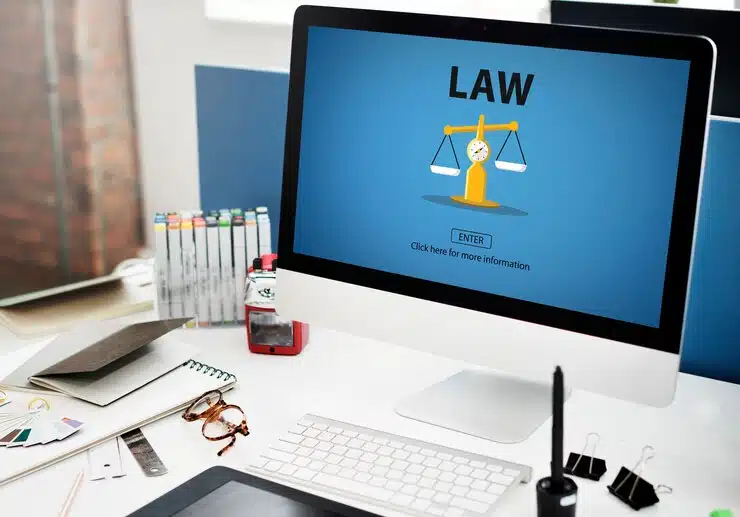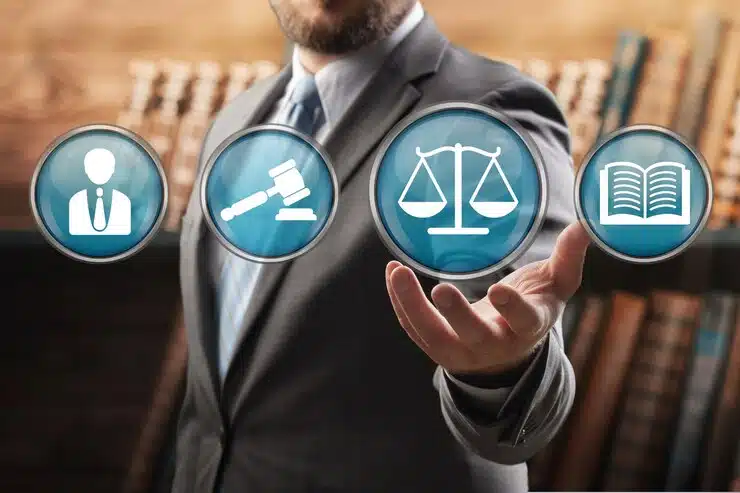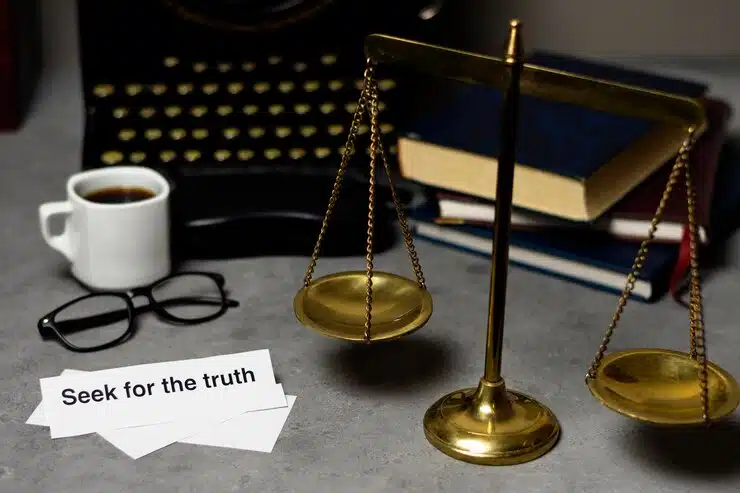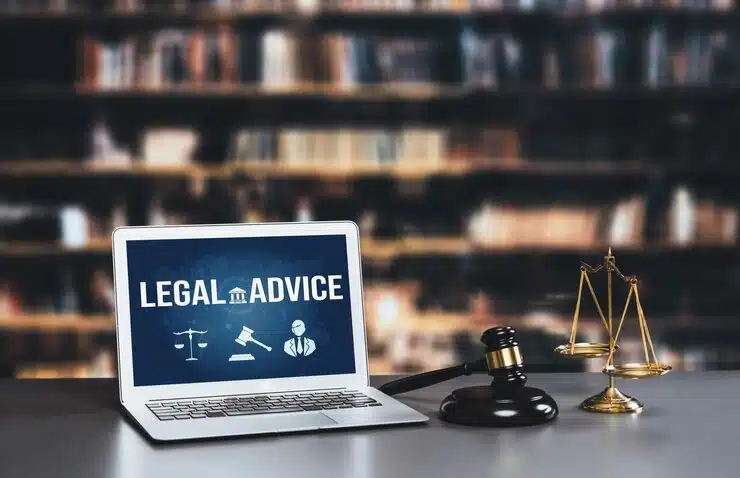In a world governed by laws and regulations, understanding your legal rights is paramount to navigating the complexities of daily life. Whether you’re signing a contract, facing a legal dispute, or simply seeking to safeguard your interests, having a clear grasp of your rights is essential. This guide aims to illuminate the path towards legal literacy, empowering individuals to make informed decisions and protect themselves in various situations.
Knowing your legal rights involves more than a mere awareness of statutes and regulations; it requires an understanding of how these rights apply to your specific circumstances. From the workplace to consumer transactions, family matters to criminal justice, each facet of life is intertwined with a unique set of legal considerations. This guide will explore the key principles that underpin legal rights, providing practical insights and actionable steps to help you navigate the legal landscape with confidence.
Empowerment through legal knowledge not only safeguards individuals but also fosters a sense of accountability within society. As we delve into the intricacies of legal rights, we will explore common pitfalls, offer strategies for effective communication, and guide you through the steps to assert and defend your rights when necessary. Ultimately, the goal is to demystify the legal realm, making it accessible to everyone and ensuring that no one is left vulnerable due to a lack of understanding.
Understanding The Importance Of Knowing Your Legal Rights
As individuals, we all have legal rights that protect us and ensure our well-being. However, many people are unaware of these rights or how to exercise them. Understanding the importance of knowing your legal rights is the first step towards empowering yourself and protecting your interests.
Legal rights are the entitlements and privileges granted to individuals by the law. They exist to ensure fairness, justice, and equality in society. Knowing your legal rights is crucial because it allows you to navigate through various situations with confidence, make informed decisions, and seek redress when necessary.
In our daily lives, we encounter situations where knowing our legal rights is essential. For example, when entering into a contract, dealing with employment issues, or facing legal disputes, being aware of your rights can make a significant difference in the outcome. By understanding your legal rights, you can assert yourself, protect your interests, and prevent potential harm.

The Basics Of Legal Rights
Legal rights can be broadly categorized into two types: civil rights and human rights. Civil rights are the rights granted to individuals by the government, such as the right to vote, freedom of speech, and the right to a fair trial. Human rights, on the other hand, are inherent rights that every individual possesses by virtue of being human, such as the right to life, liberty, and security.
Within these broad categories, there are numerous specific legal rights that address various aspects of our lives. Some examples include the right to privacy, property rights, consumer rights, and the right to education. Each of these rights is designed to protect specific interests and ensure that individuals are treated fairly and justly.
Understanding the basics of legal rights is essential because it provides a foundation for further exploration and learning. By familiarizing yourself with the different types of legal rights, you can begin to identify which areas are relevant to your life and where you may need to seek further information or assistance.
How To Educate Yourself About Your Legal Rights
Now that we understand the importance of knowing our legal rights, let’s explore how we can educate ourselves about them. Fortunately, there are numerous resources available that can help us gain a better understanding of our legal rights and how to exercise them effectively.
- Government Websites: Many government websites provide comprehensive information on legal rights, laws, and regulations. These websites often have dedicated sections that explain different legal rights and provide guidance on how to exercise them. By visiting your country’s official government website, you can access valuable information that is reliable and up-to-date.
- Legal Aid Organizations: Legal aid organizations are non-profit entities that provide free or low-cost legal assistance to individuals who cannot afford private representation. These organizations often have resources, brochures, and online materials that explain various legal rights and offer guidance on how to protect them. Contacting a legal aid organization in your area can be a valuable resource for accessing legal information and advice.
- Law Libraries: Law libraries are an excellent resource for individuals who want to educate themselves about legal rights. These libraries contain a vast collection of legal texts, statutes, case law, and legal journals. By visiting a law library, you can conduct research and gain in-depth knowledge about specific legal rights that may be relevant to your situation.
- Online Legal Platforms: The internet has made legal information more accessible than ever before. There are now numerous online platforms that provide legal resources, articles, and guides to help individuals understand their legal rights. These platforms often offer easy-to-understand explanations, FAQs, and even interactive tools to help you assess your legal rights in different scenarios.
By utilizing these resources, you can educate yourself about your legal rights and gain the knowledge necessary to protect your interests effectively. Remember that knowledge is power, and by taking the time to understand your legal rights, you are empowering yourself to navigate through various situations with confidence.

Steps To Protect Your Interests Legally
Knowing your legal rights is a crucial first step, but it is equally important to take action to protect your interests. Here are some steps you can take to ensure that your rights are upheld and your interests are safeguarded:
- Document Everything: Whenever you encounter a situation where your legal rights could be at stake, it is essential to document everything related to the incident. This includes keeping records of conversations, emails, contracts, receipts, and any other relevant evidence. Having a paper trail can be invaluable if you need to assert your rights or seek legal assistance in the future.
- Research Applicable Laws: Familiarize yourself with the laws that are relevant to your situation. This can involve researching federal, state, or local laws, depending on the issue at hand. Understanding the legal framework that applies to your case will help you make informed decisions and take appropriate action.
- Consult with Legal Professionals: If you are facing a complex legal issue or believe that your rights have been violated, it is advisable to seek legal advice. Consulting with a lawyer who specializes in the area of law relevant to your case can provide you with the guidance and expertise necessary to protect your interests effectively.
- Assert Your Rights: Knowing your legal rights is only beneficial if you are willing to assert them. If you believe that your rights have been violated, it is crucial to take appropriate action. This may involve filing a complaint, initiating legal proceedings, or engaging in alternative dispute resolution methods. By asserting your rights, you send a clear message that you will not tolerate any infringement upon your interests.
- Stay Informed and Updated: Laws and regulations are constantly evolving, so it is important to stay informed about any changes that may affect your rights. Subscribe to legal newsletters, follow reputable legal blogs, and stay updated on relevant legal developments. By staying informed, you can adapt your strategies and actions to ensure that your interests remain protected.
Taking these steps will help you proactively protect your interests and ensure that your legal rights are upheld. Remember, it is your responsibility to advocate for yourself and take the necessary actions to safeguard your rights in various situations.

Common Legal Rights Issues And How To Address Them
While the scope of legal rights is vast, certain issues are more commonly encountered than others. Here are some common legal rights issues and suggestions on how to address them:
- Employment Rights: Understanding your employment rights is essential to ensure fair treatment in the workplace. Familiarize yourself with labor laws, including those related to wages, working hours, workplace safety, discrimination, and harassment. If you believe your rights have been violated, gather evidence and consult with an employment lawyer to explore your options.
- Consumer Rights: As a consumer, you have the right to be protected from unfair business practices, false advertising, and defective products. Research consumer protection laws and regulations in your jurisdiction. If you encounter issues such as fraud, misleading advertising, or faulty products, document the incident and consider filing a complaint with the relevant consumer protection agency.
- Housing Rights: Tenants have legal rights that protect them from unfair eviction, unsafe living conditions, and discriminatory practices. Research your rights as a tenant and familiarize yourself with relevant landlord-tenant laws. If you face issues such as illegal eviction or uninhabitable living conditions, consult with a housing lawyer or contact your local housing authority for guidance.
- Family Law Rights: Family law covers a wide range of legal issues, including divorce, child custody, and domestic violence. If you are facing a family law issue, seek legal advice from a family lawyer who specializes in the relevant area. They can provide guidance on your rights and help you navigate the legal processes involved.
By addressing these common legal rights issues, you can protect your interests and ensure that your rights are respected. Remember, each situation is unique, and seeking legal advice tailored to your specific circumstances is essential.

Seeking Legal Advice And Representation
While educating yourself about your legal rights is important, there may be situations where seeking legal advice or representation becomes necessary. Here are some key considerations when seeking legal assistance:
- Identify the Relevant Area of Law: Determine the specific area of law that is relevant to your situation. This will help you find a lawyer who specializes in that area and has the necessary expertise to handle your case effectively.
- Research and Compare Lawyers: Take the time to research different lawyers and law firms. Look for reviews, testimonials, and case results to gauge their reputation and track record. Make a list of potential lawyers and compare their qualifications, experience, and fees to find the best fit for your needs.
- Schedule Consultations: Many lawyers offer initial consultations where you can discuss your case and evaluate their suitability. Take advantage of these consultations to ask questions, assess their communication style, and determine if you feel comfortable working with them.
- Consider Costs and Payment Structures: Discuss the costs and payment structures with potential lawyers. Some lawyers charge an hourly rate, while others may offer a fixed fee or work on a contingency basis. Be clear about your budget and expectations to avoid any financial surprises down the line.
- Trust Your Instincts: Ultimately, trust your instincts when choosing a lawyer. It is important to feel comfortable and confident in their abilities to represent your interests effectively. Communication, trust, and mutual respect are key factors in building a successful attorney-client relationship.
Remember that seeking legal advice and representation is an investment in protecting your interests. By working with a knowledgeable and experienced lawyer, you can navigate the legal system with confidence and maximize the chances of achieving a favorable outcome.
Empowering Yourself Through Knowledge And Action
Knowing your legal rights and taking action to protect your interests is crucial for personal empowerment. By educating yourself about your legal rights, you gain the confidence and knowledge necessary to navigate through various situations effectively.
Also Read:- How To Choose The Right Child Custody Lawyer For Your Case?
Empowerment comes from understanding the laws that govern our lives, asserting our rights when necessary, and seeking redress when our interests are violated. By taking the steps outlined in this article, you can proactively protect your interests and ensure that you are treated fairly and justly.
Remember, your legal rights are not mere abstract concepts; they are tools that enable you to assert yourself, make informed decisions, and protect your interests. By embracing your legal rights and taking action, you can empower yourself to navigate through life with confidence and resilience.
Conclusion
In conclusion, knowing your legal rights and protecting your interests is crucial for personal empowerment. By understanding the basics of legal rights, educating yourself about relevant laws, and taking appropriate action, you can navigate through various situations confidently and safeguard your interests.
Remember to document everything, research applicable laws, consult with legal professionals, assert your rights, and stay informed and updated. By addressing common legal rights issues and seeking legal advice when necessary, you can ensure that your rights are respected and your interests are protected.
Empower yourself through knowledge and action. Embrace your legal rights, assert yourself when necessary, and seek justice when your interests are violated. By doing so, you can lead a life that is guided by fairness, justice, and equality.
FAQs
Q: Are legal rights the same for everyone?
A: While there are universal human rights that apply to every individual, certain legal rights may vary depending on the jurisdiction and local laws. It is essential to familiarize yourself with the legal framework that applies to your specific situation.
Q: Can I protect my legal rights without a lawyer?
A: While it is possible to protect your legal rights without a lawyer, seeking legal advice is recommended for complex or contentious issues. A lawyer can provide guidance, ensure that your rights are upheld, and help you navigate the legal processes involved.
Q: How can I stay updated on changes in laws and regulations?
A: To stay informed about changes in laws and regulations, subscribe to legal newsletters, follow reputable legal blogs, and stay updated on relevant legal developments in your jurisdiction. This will help you adapt your strategies and actions to ensure that your interests remain protected.





